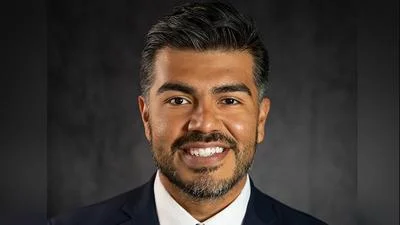Gov. J.B. Pritzker | Contributed photo
Gov. J.B. Pritzker | Contributed photo
Illinois residents rank as the highest taxed in the nation, and Gov. J.B. Pritzker wants to tax them by another $3.7 billion.
State residents pay higher effective state and local tax rates than anyplace else in the United States, according to an annual survey by WalletHub. The state held the dubious distinction in 2019 and prior years. Helping the state keep its No. 1 ranking was a rise in household taxes by 11% since 2017, Illinois Policy reported.
Families in Illinois pay almost 15% of their income in total local and state taxes. The $9,064 in taxes is based on the average U.S. household income of $60,602, and comes on top of average federal taxes of $9,000.
More than a third of state residents would be willing to move out of the country for a tax-free future. That should offer a warning to politicians wanting to increase the tax burden.
Pritzker wants taxpayers to vote on Nov. 3 to eliminate the flat income tax protection offered by the Illinois Constitution to replace it with progressive tax rates, Illinois Policy reported.
If voters trust state lawmakers with more of their money, he’d tax different income groups at different rates. When Connecticut tried this, it lost jobs and $10 billion out of its economy. Middle-class tax rates rose 13% and poverty increased by 50%. Overall, the state lost 362,000 jobs.
Illinois hardly needs help decreasing its population after six straight years of population decline. The people leaving the state mostly are in their prime working years – the people paying taxes and whose children would be the next generation funding the state budget are moving out, Illinois Policy said. The slowest growth rates in the nation are seen in four of the five states with progressive income taxes.
New York found out what taxing the rich would do. It’s the only state that lost a bigger proportion of residents who made $200,000 or more than Illinois did in 2018.
A poll in October found 61% of the state’s residents considered leaving the state. State taxes topped the list of reasons why. That amount jumped 10% from the same poll in 2018, Illinois Policy said.
Illinois keeps taking action to maintain its No. 1 ranking in taking money from state residents. Historic income tax hikes in 2011 and 2017 were followed by 20 new or increased fees and taxes in 2019. Those included doubling the gasoline tax.
Imposing a progressive tax would cut 56,336 jobs in Illinois according to an Illinois Policy Institute analysis. That’s much more than the state gained in 2019.
Only a small amount of the $3.7 billion would get directed toward the biggest financial problem Illinois has: public pension debt. Pritzker designates $200 million a year for pensions, and promises to spend $6.3 billion a year more than the tax is projected to yield.
A prolonged shutdown of the state’s economy due to executive orders related to the COVID-19 pandemic will leave an even bigger mark on the budget.
The Illinois Policy Institute produced its Illinois Forward plan to balance the budget in five years. It would pay down debt and cut taxes also. Its first idea does something the progressive tax plan doesn’t even attempt: It calls for an amendment to the Illinois Constitution to curb the growth in not-yet-earned benefits.






 Alerts Sign-up
Alerts Sign-up